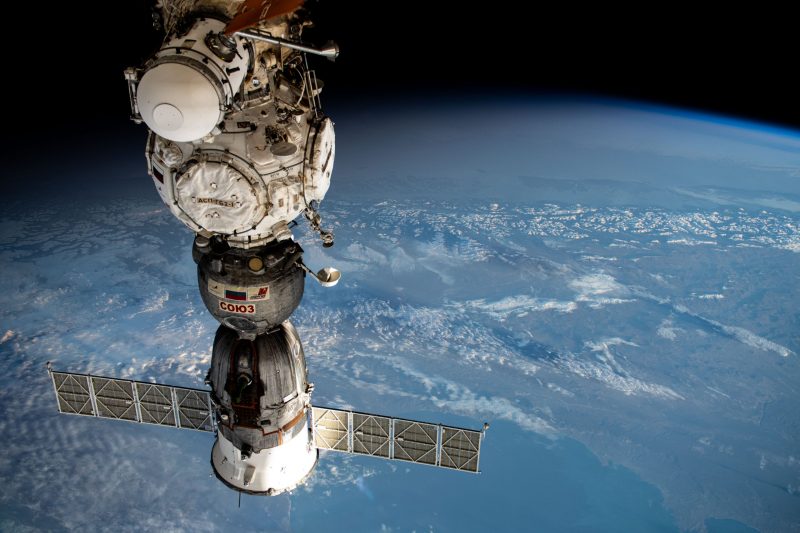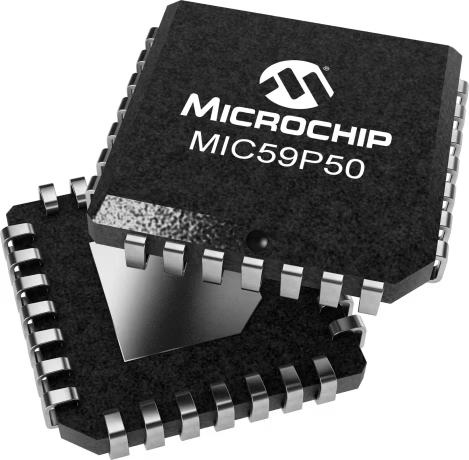Microchip Technology Inc.: Entering the Space Market
Microchip Technology Inc., a renowned microcontroller, mixed-signal, analog, and Flash-IP solutions provider, has made significant inroads into the space market. The company’s entry into this domain is a testament to its innovative approaches and commitment to addressing the unique demands of space applications. This article explores how Microchip has ventured into the space market, detailing the tools and applications it addresses.
Strategic Entry into the Space Market
Microchip’s entry into the space market is strategic, leveraging its expertise in reliable and robust semiconductor solutions. The company’s approach is multi-faceted, encompassing a range of products specifically designed to meet the stringent requirements of space applications. These products include radiation-hardened microcontrollers, FPGAs (Field-Programmable Gate Arrays), power management solutions, and timing devices.
Radiation-hardened microcontrollers and Microprocessors
One critical challenge in space applications is exposure to high levels of radiation, which can significantly affect the performance and reliability of electronic components. Microchip addresses this issue by offering a line of radiation-hardened (rad-hard) microcontrollers and microprocessors.
Microchip’s rad-hard microcontrollers are designed to operate reliably in harsh space environments. These devices undergo rigorous testing to ensure they can withstand extreme radiation levels, thereby preventing single-event upsets (SEUs), single-event latch-ups (SELs), and total ionizing dose (TID) effects. For example, Microchip’s ATmegaS64M1 and ATmegaS128 are popular choices for space applications due to their rad-hard properties and versatile functionalities.
Field-Programmable Gate Arrays (FPGAs)
FPGAs are critical components in space applications due to their flexibility and reconfigurability. Microchip’s FPGAs, such as the RTG4 family, are specifically designed for space applications. These rad-hard FPGAs offer high performance, low power consumption, and reliability.
The RTG4 FPGAs provide inherent SEU immunity, crucial for maintaining system integrity in space. These devices are used in various applications, including satellite communications, scientific instruments, and space exploration missions. Their reconfigurable nature allows engineers to update and optimize the hardware even after deployment, providing significant advantages in long-duration space missions.
Power Management Solutions
Reliable power management is essential for space missions, where power availability is limited and critical to the mission’s success. Microchip offers a range of power management solutions tailored for space applications. These include radiation-hardened DC-DC converters, linear regulators, and power controllers.
Microchip’s rad-hard power management devices are designed to deliver efficient and reliable performance in the harsh space environment. For example, the MIC6950 is a low-dropout (LDO) linear regulator that can withstand high radiation levels and provide stable voltage regulation critical for sensitive space equipment.
Timing and Synchronization Solutions
Precise timing and synchronization are vital in space applications, especially for satellite communications and navigation systems. Microchip provides various rad-hard timing and synchronization solutions, including oscillators and clock generators.

Microchip’s SA.50s and SA.70s space-grade oscillators are designed to deliver accurate timing even in the presence of radiation. These oscillators are crucial for maintaining the synchronization of communication signals and ensuring the precise functioning of navigation systems.
Applications in Space Missions
Microchip’s products find applications across various space missions, from satellite communications to deep space exploration. Here are some key areas where Microchip’s solutions are making an impact:
Satellite Communications
Reliable and robust electronic components are essential in satellite communications to maintain uninterrupted communication links. Microchip’s rad-hard FPGAs and microcontrollers are used in the payload and transponders of communication satellites. These components help manage data processing, signal routing, and error correction, ensuring the reliability of communication systems.
Scientific Instruments
Space missions often carry scientific instruments designed to collect data and conduct experiments. Microchip’s rad-hard microcontrollers and FPGAs control these instruments, process the collected data, and communicate with mission control on Earth. The reliability and performance of these components are critical for the success of scientific experiments in space.
Space Exploration
Deep space exploration missions require electronic components that can withstand extreme conditions over extended periods. Microchip’s rad-hard solutions are used in various systems aboard spacecraft, including navigation, communication, and power management systems. These components ensure the reliable operation of spacecraft as they travel through space, conducting exploratory missions and gathering valuable data.

Navigation Systems
Accurate navigation is crucial for space missions, especially for autonomous spacecraft and landers. Microchip timing solutions, such as space-grade oscillators, provide precise timing for navigation systems. These solutions help spacecraft determine their position, navigate through space, and execute complex maneuvers.
Collaboration and Innovation
Microchip’s success in the space market is also attributed to its collaborative approach and continuous innovation. The company works closely with space agencies, research institutions, and industry partners to develop and validate its products. This collaboration ensures that Microchip’s solutions meet the evolving demands of space applications.
Additionally, Microchip invests in research and development to advance its technology and expand its product portfolio. The company continuously seeks to enhance its components’ performance, reliability, and radiation tolerance, ensuring they meet the highest standards required for space missions.
Future Prospects
The future looks promising for Microchip in the space market. With the increasing demand for satellite-based services, space exploration missions, and scientific space research, the need for reliable and robust electronic components will continue to grow. Microchip is well-positioned to address this demand with its comprehensive range of rad-hard solutions.
Furthermore, new space technologies, such as small satellites (CubeSats) and mega-constellations, present new opportunities for Microchip. The company’s ability to provide scalable, high-performance solutions makes it a valuable partner in these emerging areas.
 Conclusion
Conclusion
Microchip Technology Inc. has made a significant impact on the space market through its innovative and reliable solutions. By addressing the unique challenges of space applications with its radiation-hardened microcontrollers, FPGAs, power management solutions, and timing devices, Microchip has established itself as a critical player in the industry. Through continuous innovation and strategic collaborations, Microchip is poised to support the growing demands of space missions, contributing to advancements in satellite communications, scientific research, and space exploration.
Microchip Technology Inc. was established in 1989 after General Instrument spun off its microelectronics division. Initially, the company focused on developing and manufacturing microcontrollers and related products. Over the years, Microchip expanded its portfolio through strategic acquisitions, including SST in 2010 and Atmel in 2016. This growth enabled the company to diversify into various sectors, including automotive, industrial, and consumer electronics. Microchip’s innovative solutions and emphasis on reliable, high-performance products have solidified its reputation as a leading provider in the semiconductor industry, catering to a broad range of applications and markets worldwide.

